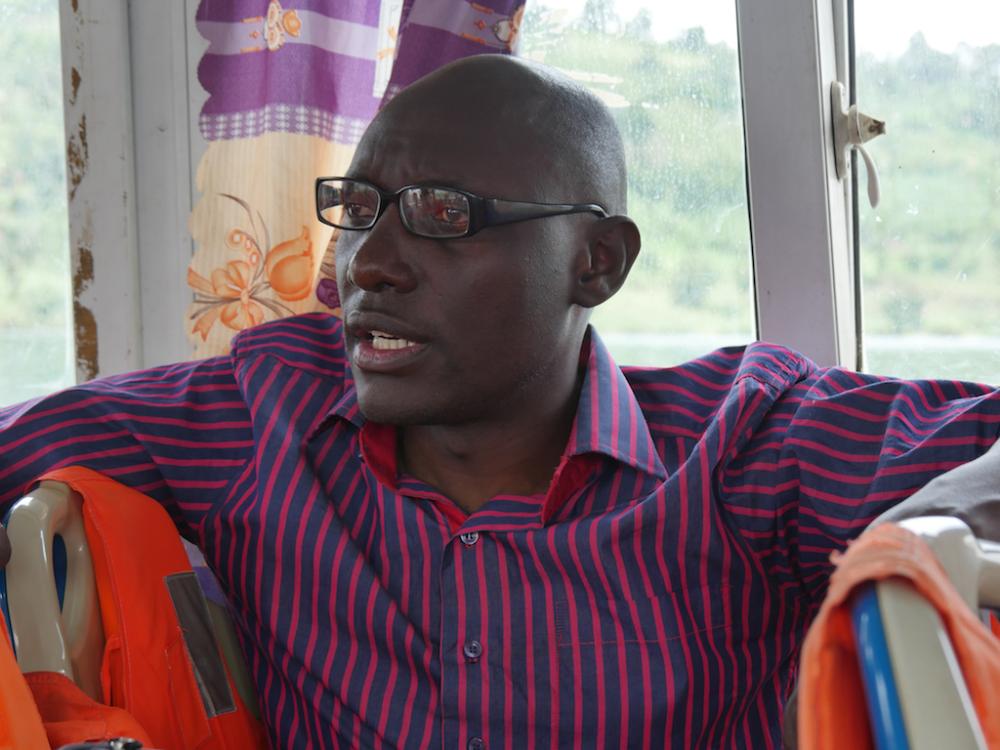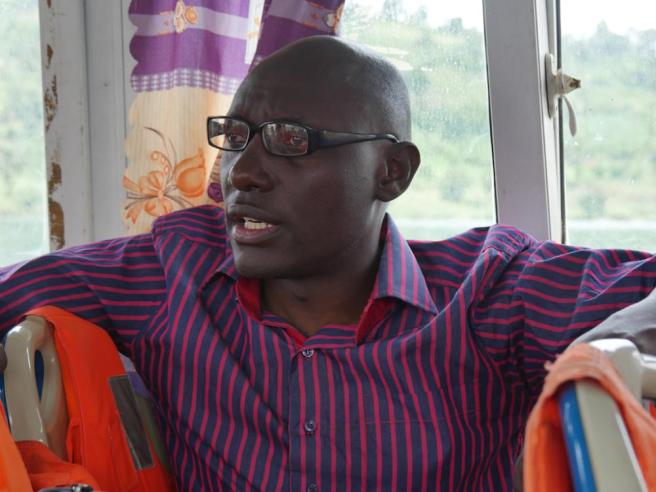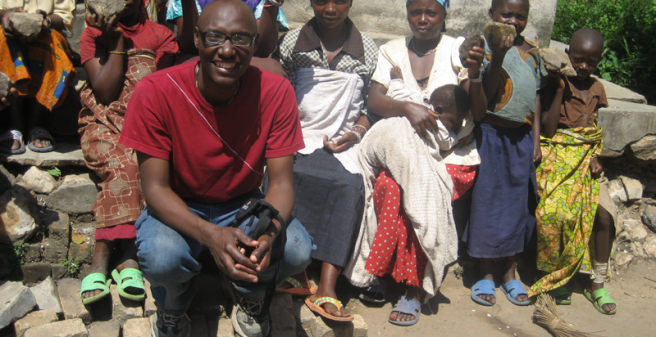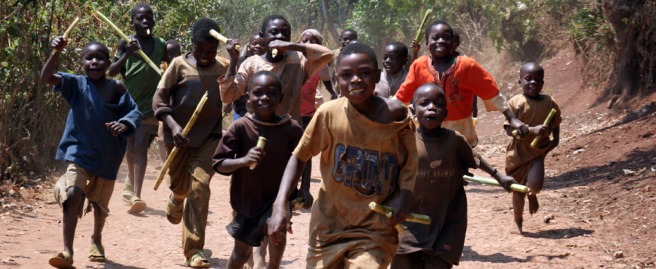
Jacques Sebisaho, Wisdom and Warriorship by the Awful Grace of God
Filed in Hero's Journey Series — July 3, 2017
In our blog we’ve pulled back the veil on our approach and methodologies through largely ‘plug and play’ resources and Masterclasses so you can skillfully engage the funding partners your mission deserves.
Black Fox Global
Welcome to the Blog
Black Fox Fundraising Handbook
open source download

Jacques Sebisaho was born in 1973 on the remote island of Idjwi in Lake Kivu, then a Zaire territory known for malnutrition and its high infant mortality rates, but also for the dignity of its people, notably the indigenous Bambuti (pygmies). Dignity is a theme that would be woven throughout Jacques’ life: admiring it, longing for its inherent power, to ultimately embracing it as a birthright, using its power to transcend a youth with fear and shame at its core. Alongside the fear is a powerful undercurrent of love, a deep knowing of being cherished despite the dark skin and distended belly; a profound sense of being borne of something beyond the chaos and cruelty that lay beyond his front door. For Jacques not only grew up on a geographic island, but on a familial island led by a deeply wise and widely respected father, and a mother whose voice and bearing as a businesswoman was a beacon in the village, despite her Rwandan roots in an increasingly pro-Hutu world.
By 1995, those Rwandan roots would betray Jacques repeatedly, despite the dominantly Congolese blood coursing through his veins. The region became one of the most violent on earth as the Hutu extremists began killing their political opponents, the Tutsi. At the National University of Rwanda, within the cocoon of academia, Jacques watched as Tutsis were being massacred beyond the University gates. Within the gates, classmates began turning on each other, forming militia to expose suspected Tutsi to authorities known for their merciless brutality. Jacques was exposed daily to scrutiny by hundreds of Hutu students with the scent of blood in their nostrils, and hated in eyes that mirrored his own in color only.
Word arrived of the brutal murder of his cousin, Andre, an intellectual reduced by a butchering then dragged from a car as a warning to others. Within the ensuing heated confusion, Jacques’ fate lay in the hands of a bloodthirsty crowd seeking his life, and friends who fiercely defended him as a Hutu compatriot, a Congalese, a brother, thus placing their own lives in danger. In a pivotal moment that could decide all, Jacques fled inside a church for protection, only to be turned out by the priest who would not lay down his own life for the dark skinned young man seeking asylum.
In the midst of terror a resolve rose up in young Jacques, a clarity that can only be seen as grace: “If I am to survive this, if I am to be given a second chance, it is not for me.”
Amani Global Works’ mission is to Care, Cure, and Make Whole by providing healthcare to the most impoverished and forgotten areas of Africa. Its founder, Dr. Jacques Sebisaho, was educated at the National University of Rwanda, holds a Master of Public Administration from Baruch College, a Bachelor’s degree in Biomedical Science from Catholic University of Bukavu (DRC) and a diploma in Philosophy from Grand Seminaire Monseigneur Busimba in Goma (DRC). A general practitioner with a focus on internal medicine, he worked for five years at New York-Presbyterian Hospital and one year at the Millennium Villages Project at Columbia University. Despite these distinctions and the trappings of a material western world at his fingertips, Jacques is at his core a deeply humble man, a soul moved to help the vulnerable and marginalized peoples on his beloved island, people for whom he feels a deep kinship borne of his own suffering and shame as one persecuted, oppressed, and ostracized in a world that valued hate over character and intelligence.
With his Congolese wife Mimy Mudekereza, R.N., at his side, regal in her own right and also a fearless warrior for social justice, Jacques founded Amani Global Works in 2009 to provide accessible and affordable healthcare for all residents of Idjwi, particularly the indigenous Bambuti, and to use health as a catalyst for sustainable development. Their vision is not only to see Idjwi become the leader in healthcare and research in the Great Lake region of more than one hundred million people, but to be a stable haven in rural Africa where people can receive medical care, invest, and grow thriving businesses. The word Amani means peace in Kiswahili, but to the largely forgotten people of Idjwi, it also means humanity and hope, words embodied by both Jacques and Mimy.
“He who learns must suffer. And even in our sleep pain that cannot forget falls drop by drop upon the heart, and in our own despair, against our will, comes wisdom to us by the awful grace of God.”
Aeschylus
Our deepest passions often spring from our deepest wounds, passions that are borne through the awful grace of God. As Jacques was given that second chance, having miraculously escaped the firing squad and countless other horrors of his youth, he has boldly stepped into living a life for others, transforming his own wounding into source of healing, power and progress for himself, his beloved Idjwi, and all of rural Africa through a successful healthcare infrastructure model created in partnership with the community. Pregnant women, the elderly, the indigenous, and the socially vulnerable receive free healthcare. Adults pay 1000 Congolese francs (1US$), and the children’s fee is only 500 Congolese francs (50 cents). The 50-bed hospital provides quality healthcare to all, with dignity and compassion a hallmark for all who pass through its doors.
The region now boasts no maternal or child deaths, 100% recovery of all cholera cases, and serves children through the Amani nutrition program that includes a “one garden per family” component, eradicating severe malnutrition in all villages they serve. Jacques shares, “If this kind of community approach to healthcare, an indispensable one for sustainability, is possible on Idjwi — one of the poorest, most difficult to reach areas in the world — it’s possible anywhere.”
As Jacques approaches Idjwi on the ferry from the shores of the Democratic Republic of Congo, he wells up with wonder and gratitude at the sight of the figures on the dock, dancing and singing to welcome their island son home. Upon arrival, Jacques asks an elder, “Why do the people do this?” The reply, “Because they love you. Because you have not forgotten us, but instead have shown us boundless love.” And with this, the pain that cannot forget, falling drop by drop upon the heart, is transformed into the greatest healer of all: love.
Official bio: Dr. Jacques Sebisaho is founder and executive director of Amani Global Works, which works to improve health on his native Idjwi Island in Africa’s Democratic Republic of Congo with preventive and emergency healthcare through creation of sustainable medical facilities. He was previously president and medical supervisor of the community of Sant’egidio in DRC and managed and conducted the Pueri Cantores of Bukavu, a professional children’s choir. Sebisaho has received the Richard C. Holbrook Leadership Award, Rising Star Award, Visionary Making an Impact on Global Health Award, and Pharmacy Team Excellence Award. He is an Aspen Institute New Voices Fellow.
© copyright black fox global
SUBSCRIBE
resources
At Black Fox Global, we’re committed to mobilizing significant resources to help you build capacity, break the cycle of urgency in fundraising, and deepen your impact.
our work
Sign up to receive our collection of our best practices, strategies and insights.
affiliations
Certified b corporation
Black Fox Global is a certified B Corporation. Unlike traditional corporations, Certified B Corporations are legally required to consider the impact of their decisions on their employees, suppliers, community, consumers, and environment.

